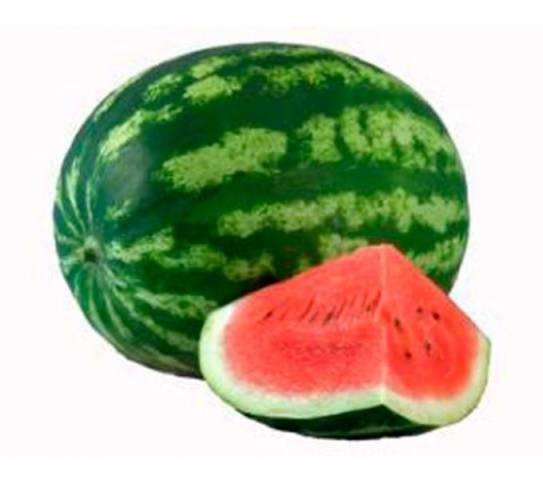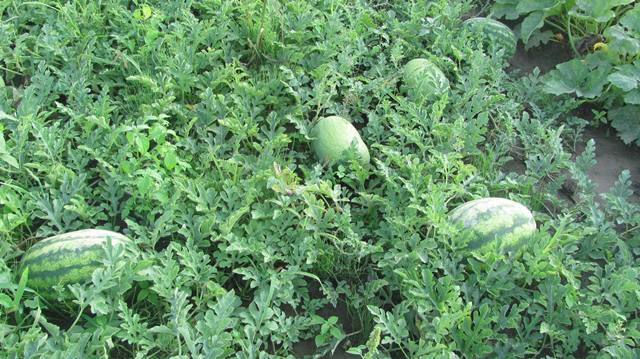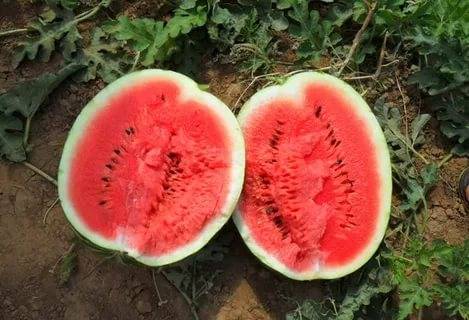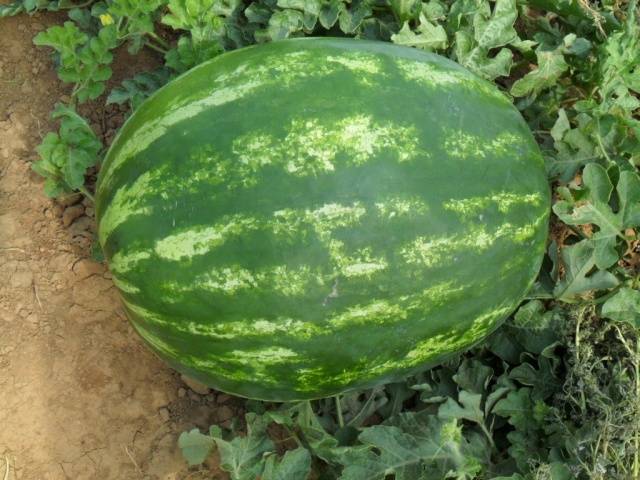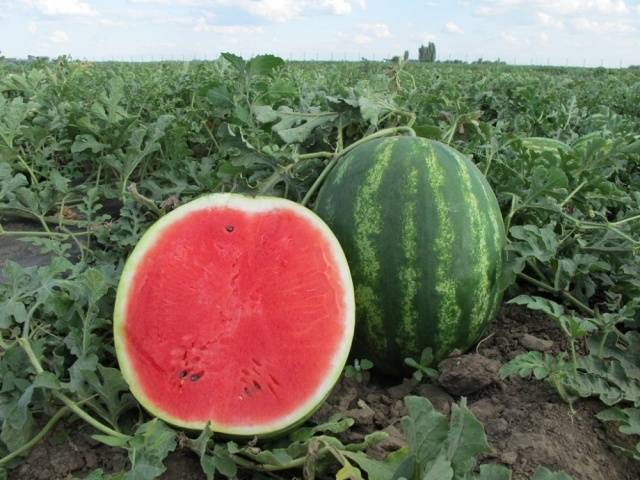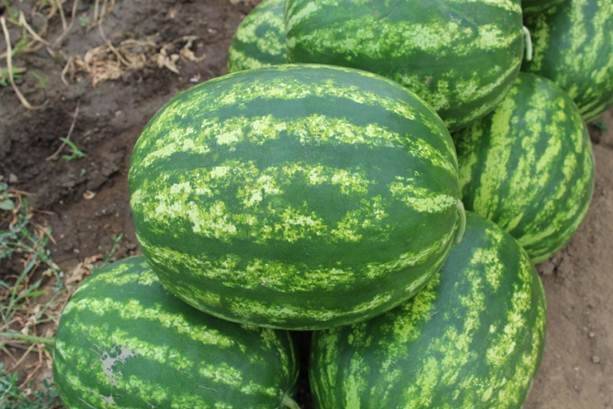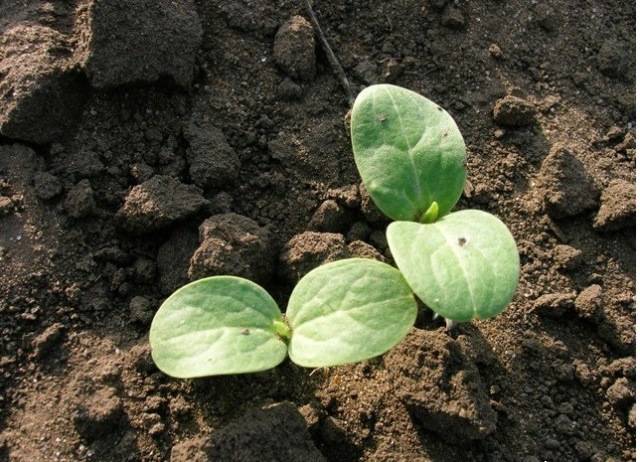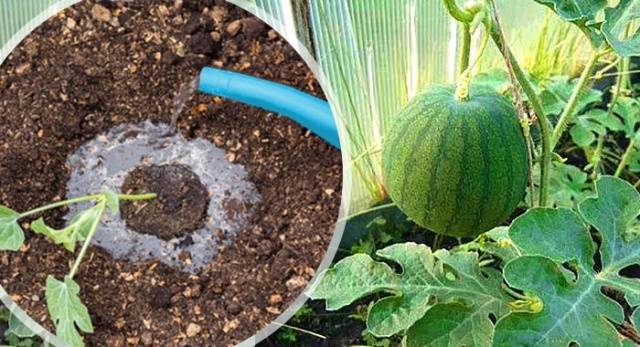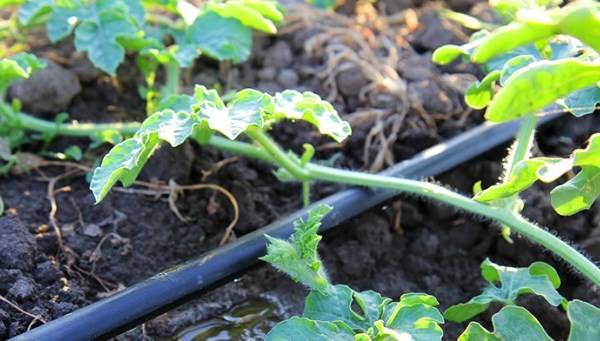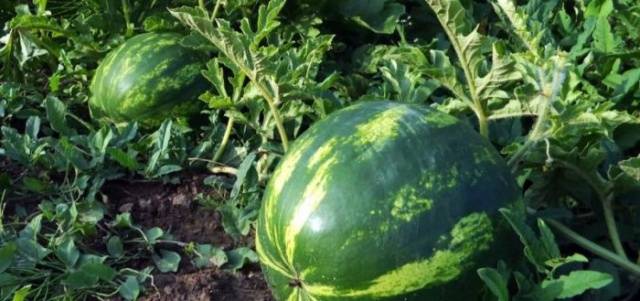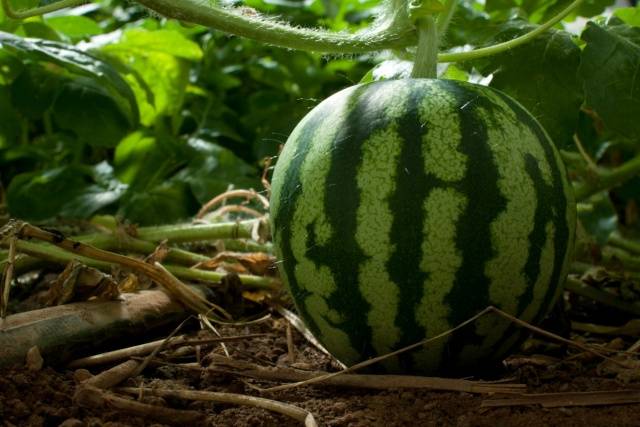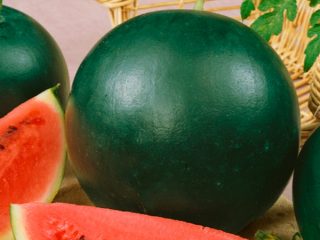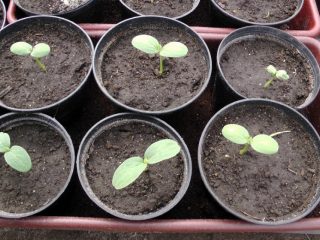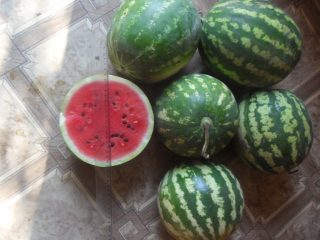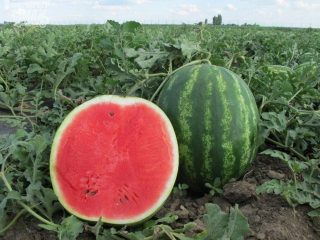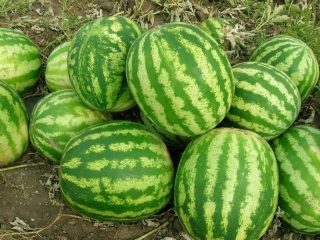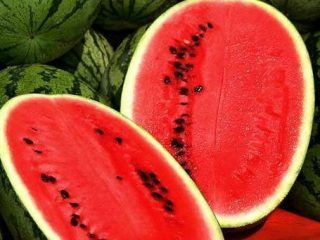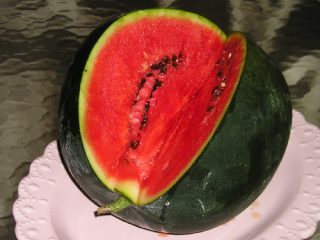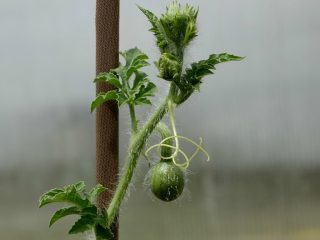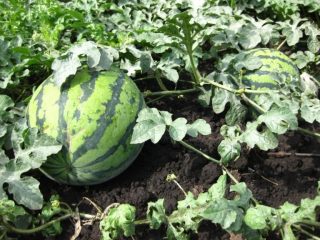Content
The Producer watermelon has gained popularity among farmers. This early variety is especially attractive for the southern regions, where it produces large, juicy fruits weighing up to 20 kg. Watermelon also produces good yields in the short but hot summer of the middle zone.
Watermelon Producer is a product of selection by American scientists, intended for cultivation both on an industrial scale and in personal plots. According to experts, it is a modification of a popular American variety with improved characteristics.
Characteristics of the variety
Watermelon Producer, as the description shows, produces round-oval berries with rich red, juicy flesh and a smooth striped surface. Among the characteristics of the fruit are:
- high seed germination – up to 99%;
- early ripeness - fruits ripen 2-2.5 months after emergence;
- good yield indicators – up to 8 kg/sq.m. m;
- excellent presentation and excellent taste – up to 12% sugar;
- excellent transportability and good shelf life;
- resistance to fungal diseases;
- Possibility of growing in greenhouses and open beds.
The Producer variety also has some disadvantages, these include:
- dependence on temperature conditions;
- the need for regular watering and fertilizing;
- does not always have time to fully ripen.
Preparing seeds for sowing
If the Producer variety is grown in the southern regions, the seeds can be sown directly in open ground. For the middle zone, the seedling method is more optimal, which brings fruiting closer by about half a month. In more northern regions and Siberia, the Producer variety is grown in greenhouses. Seeds stored for 3-4 years give better germination.
Preparing seedlings begins with proper seed selection. You can choose hybrids of the Producer variety that are more resistant to cold. To prepare for sowing you should:
- dip the seeds in a 3% solution of table salt;
- all floating seeds must be discarded;
- Wrap specimens that have settled to the bottom in gauze and rinse under running water;
- after drying, warm for 2 hours at a temperature of about 60 degrees;
- place for disinfection in a solution of potassium permanganate;
- Place on a plate and cover with a sprouting cloth.
Soil for sowing watermelon AU Producer can be purchased at a specialized store - the germination rate of seeds is much higher. However, you can prepare it yourself by mixing humus with turf soil or peat. You can add sawdust to the mixture.
Planting seeds
Sowing of seeds is carried out around mid-April. It is better to plant them in peat pots so as not to damage the sprouted roots when transplanting them into open ground. After sowing the seeds, the pots are watered and covered with film to accelerate germination. In a warm place they will quickly hatch and friendly shoots will appear. They need good lighting.The appearance of 3-5 leaves is a signal to transplant the seedlings to open beds.
When planting in open ground, prepare small grooves up to 4-5 cm deep, into which seeds are placed at intervals of 2 cm, and then sprinkled with earth. Crops are watered with warm water.
Transplanting to beds
Watermelon Producer, as the description of the variety indicates, has a branched root system that requires light aerated soils. Therefore, to transfer seedlings to open ground, you need to prepare certain conditions:
- sandy and sandy loam soils are most favorable - melons will not grow in acidified areas;
- The groundwater level must be low;
- the soil must first be dug up and removed weeds, fertilize with humus and sawdust;
- useful predecessors of the Producer variety are potatoes and legumes, and undesirable ones are melons;
- It is also not recommended to plant tomatoes or onions next to seedlings of the Producer variety;
- an important factor affecting the effective growth and formation of taste characteristics of the fruit is illumination;
- watermelon planting scheme Producer for open ground - 1.4x1.0 m, and for greenhouses - 0.7x0.7 m;
- The optimal temperature for intensive growth and rapid ripening is above 20 degrees.
It is good to plant watermelon Producer in elevated places - they are more intensely illuminated and warmed up by the sun. Planting seedlings can be done at an ambient temperature of 15 degrees, when the danger of return frosts has passed.
Formation of stems
In greenhouse conditions, shoots are formed into one main stem, tying it to a support. From the side shoots, shoots less than half a meter long are removed so that they do not shade the fruits. The more ovaries are formed on the shoots of the Producer variety watermelon, the more time and effort they need to ripen. It is recommended to leave 3 ovaries on each of them, and remove the rest. Two stepsons are left on the main stem, the rest are cut off. After the ovary appears, the lash is pinched after three leaves. Then you will get exactly three fruits that will ripen almost simultaneously.
In open beds, watermelons of the Producer variety are formed into three stems, then the tops are pinched. Although watermelons need plenty of sun when they begin to ripen, the fruits need to be lightly shaded. To do this, on especially hot days, each watermelon can be covered with large leaves, for example, burdock.
Organization of watering
Since watermelons are drought-resistant, watering should be quite moderate, depending on the stages of vegetative development of plants: in the initial period, when the ovaries form, watermelons are watered in the morning and evening;
- during the flowering period, twice a week is sufficient;
- during hot periods - once every 7-8 days;
- at the stage of fruit formation, watering should be limited;
- At the ripening stage, irrigation of watermelons AU Producer, as recommended by reviews, is stopped.
Most often, farmers organize a drip irrigation system, which is ideal for Producer watermelons in terms of increasing productivity. Loosening is important for watermelons. It should be shallow so that the root system is not damaged, but weekly.
In northern regions, groundwater is often located close to the surface, and watermelon roots can rot.With the help of a little trick, you can force the root processes to spread not in depth, but in breadth. To do this, you need to dig small grooves between the rows, along which you can organize watering.
Feeding
After the formation of the ovaries, rapid growth of the fruit begins. During this period, characteristics of watermelons The producer recommends weekly feeding with mineral fertilizers. They should be done after rain or watering. Regular fertilizing can be replaced by pre-sowing filling of the soil with ash and humus or adding them to each hole before planting seedlings. Watermelon especially needs phosphorus and potassium compounds.
Watermelon is a heat-loving plant, so you need to provide it with a lot of heat. Many farmers who grow watermelons in the middle zone resort to small tricks. After planting the seedlings in open ground, a small greenhouse is built over it in the form of a film stretched over supports. The film is removed only at the end of June, and this should be done in the evening or on a cloudy day so that the sun does not burn the tender seedlings.
Disease Control
Although the Producer watermelon variety is resistant to anthracnose and stem rot, there are many other fungal diseases that require preventive treatments:
- if whitish spots of powdery mildew appear on the stems, you need to collect all the affected parts of the plant and burn them;
- To prevent root rot infection, it is necessary to disinfect the soil before planting.
To protect watermelons of the Producer variety from contact with the ground and infection with root rot, many farmers place planks under each fruit and sprinkle the root collar with sand.
Common pests when growing watermelon Producer include:
- melon aphid, signs of which are expressed in black spots, twisting of stems;
- spider mite, which causes gradual drying of watermelon vines.
All affected leaves and stems must be removed and destroyed. For preventive purposes, it is necessary to regularly inspect the bushes and spray them.
Reviews from gardeners and farmers
Conclusion
If the rules of agricultural technology are observed, the Producer watermelon variety produces consistently high yields every year and is promising for industrial cultivation.
